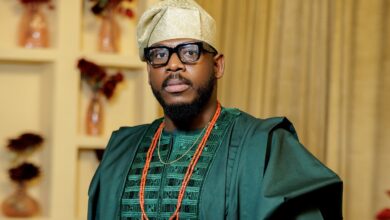Life Style
Famous Nigerian Authors

Nigeria boasts a rich literary tradition, producing some of the most influential and celebrated authors in African and global literature. From groundbreaking novels to poignant poetry, Nigerian authors have captivated readers with their storytelling prowess and insightful narratives. Here’s a tribute to some of Nigeria’s most famous authors who have left an indelible mark on literature:
- Chinua Achebe (1930-2013):
Chinua Achebe is often regarded as the father of modern African literature. His novel “Things Fall Apart” (1958) is a seminal work that explores the clash between traditional Igbo culture and colonialism. Achebe’s writing style and deep insights into Nigerian society earned him international acclaim and established him as a literary giant. - Wole Soyinka (1934 – ):
Wole Soyinka is Nigeria’s first Nobel laureate in Literature (1986). His works, including plays like “Death and the King’s Horseman” and poems such as “Telephone Conversation,” reflect his commitment to social justice and cultural identity. Soyinka’s literary activism and powerful storytelling continue to resonate globally. - Chimamanda Ngozi Adichie (1977 – ):
Chimamanda Ngozi Adichie is a contemporary Nigerian author whose works have garnered widespread acclaim. Her novel “Half of a Yellow Sun” (2006), which depicts the Nigerian Civil War, and “Americanah” (2013), exploring themes of identity and race, have solidified her reputation as a voice of her generation. Adichie’s writing is celebrated for its depth, empathy, and keen observation of human relationships. - Buchi Emecheta (1944-2017):
Buchi Emecheta was a pioneering Nigerian author known for her novels exploring gender roles and feminism in African society. Works such as “The Joys of Motherhood” (1979) and “Second Class Citizen” (1974) depict the struggles and resilience of Nigerian women, earning her recognition as a literary trailblazer. - Ben Okri (1959 – ):
Ben Okri is a Nigerian poet and novelist whose works often blend reality with magical realism. His novel “The Famished Road” (1991), which won the Booker Prize, is celebrated for its lyrical prose and exploration of spiritual and political themes. Okri’s writings continue to inspire readers with their imaginative storytelling and philosophical depth. - Cyprian Ekwensi (1921-2007):
Cyprian Ekwensi was a prolific Nigerian author known for his diverse literary output, including novels, short stories, and children’s books. His works, such as “Jagua Nana” (1961) and “The Passport of Mallam Ilia” (1948), vividly portray Nigerian life and culture, making him a popular figure in Nigerian literature. - Helon Habila (1967 – ):
Helon Habila is a contemporary Nigerian novelist and poet whose works often explore themes of migration, identity, and politics. His novel “Waiting for an Angel” (2002) and “Oil on Water” (2010) are critically acclaimed for their compelling narratives and social commentary, reflecting the complexities of Nigerian society. - Adaora Lily Ulasi (1929-2002):
Adaora Lily Ulasi was a Nigerian author and educator known for her contributions to children’s literature and educational texts. Her books, such as “Omenuko” (1966), have been influential in promoting literacy and cultural awareness among Nigerian youth. - Amos Tutuola (1920-1997):
Amos Tutuola was a Nigerian author renowned for his unique style of storytelling rooted in Yoruba folklore and mythology. His novel “The Palm-Wine Drinkard” (1952) is a classic of African literature, captivating readers with its imaginative narrative and cultural richness. - Chris Abani (1966 – ):
Chris Abani is a Nigerian-American author and poet whose works often explore themes of identity, exile, and human rights. His novels “GraceLand” (2004) and “The Virgin of Flames” (2007) have received international acclaim for their lyrical prose and poignant portrayal of Nigerian society.
These Nigerian authors have not only enriched global literature with their diverse voices and narratives but have also contributed significantly to the cultural and intellectual landscape of Nigeria. Their works continue to inspire, provoke thought, and offer profound insights into the complexities of Nigerian history, society, and human experience.




